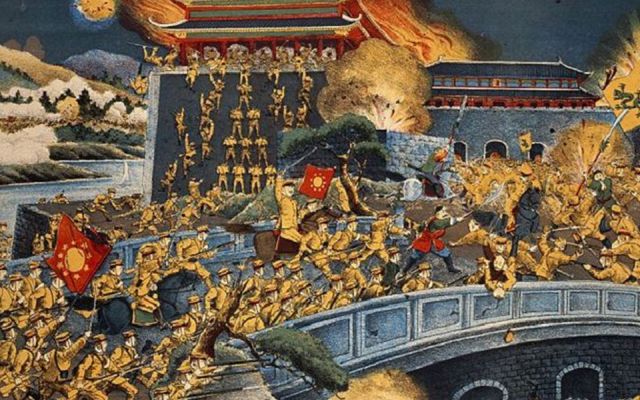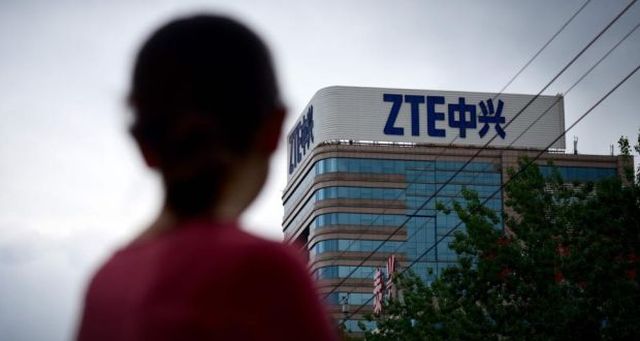
by Editor | May 25, 2021 | World
 By Gaurav Sharma,
By Gaurav Sharma,
Beijing : China spent $171 million on ecological conservation projects in Tibet in 2017.
In Southwest China, Tibet has several lakes that are the source of major water bodies including the Yangtze river. The autonomous region of China also has rich wildlife.
The projects range from grassland, wetland and wildlife protection to the construction of nature reserves and afforestation., Xinhua news agency said.
In 2009, China introduced a 23-year plan with a total spending of 15.5 billion yuan to boost ecological conservation in the region.
Statistics showed that in 2017, Tibet had 47 nature reserves covering 412,200 sq km or more than one-third of the region’s total territory.
Zhang Tianhua, deputy head of the regional environmental bureau, said the region has set up a special committee for monitoring the environment in Tibet and is cracking down on illegal activities in the nature reserves.
Over the past five years, more than 60 regulations on environmental protection have been introduced in Tibet. Authorities investigated nearly 1,000 cases of environmental breaches.
—IANS

by Editor | May 25, 2021 | Business, Commodities, Commodities News, Economy, Emerging Businesses, Large Enterprise, Markets, News
 Rome : Global tea consumption and production will keep rising over the next decade, driven by robust demand in developing and emerging countries, notably China and India, according to a new report by the United Nations Food and Agriculture Organisation Intergovernmental Group.
Rome : Global tea consumption and production will keep rising over the next decade, driven by robust demand in developing and emerging countries, notably China and India, according to a new report by the United Nations Food and Agriculture Organisation Intergovernmental Group.
Tea consumption has grown particularly rapidly in China, India and other emerging economies, driven by a combination of higher incomes and efforts to diversify production to include speciality items such as herbal teas, fruit fusions and flavoured gourmet teas, according to the report.
The buoyant tea market will create new rural income opportunities and improve food security in tea-producing countries, it said.
The report, which was finalised in China’s Hangzhou suggests that tea consumption has also benefited from increased awareness of the beverage’s anti-inflammatory, antioxidant and weight loss effects.
“Such health and wellbeing benefits are seen as the key drivers of future consumption growth,” FAO said.
World production of black tea is projected to rise annually by 2.2 percent over the next decade to reach 4.4 million tonnes in 2027, reflecting major output increases in China, Kenya and Sri Lanka – with this China would reach the output levels of Kenya, the largest black tea exporter in the world, the report forecasts.
Global output of green tea is foreseen to increase at an even faster rate of 7.5 percent annually to reach 3.6 million tonnes in 2027, largely driven by China, where the production of green tea is expected to more than double from 1.5 million tonnes in 2015-2017 to 3.3 million tonnes in 2027.
The report also warns that tea production is highly sensitive to changes in growing conditions.
“Tea can only be produced in narrowly defined agro-ecological conditions and, hence, in a very limited number of countries, many of which will be heavily impacted by climate change,” FAO said.
Changes in temperature and rainfall patterns, with more floods and droughts, are already affecting yields, tea product quality and prices, lowering incomes and threatening rural livelihoods. These climate changes are expected to intensify, calling for urgent adaptation measures. In parallel, there is a growing recognition of the need to contribute to climate change mitigation, by reducing carbon emissions from tea production and processing.
The report urges tea-producing countries to integrate climate change challenges, both on the adaptation and mitigation front, into their national tea development strategies.
Global demand for tea is also benefiting from a new clientele. Young urban consumers in large producing countries like China and India have emerged as the fastest growing segment, eager not only to pay a premium for specialty teas but also curious to know more about the product they consume – its quality, origin and contribution to sustainable development.
Young, upper-middle class consumers are looking for fashionable products to be integrated into their lifestyles, which now also includes gourmet quality tea, and consuming them in the sophisticated environments of specialty teashops and exclusive restaurants, hotels and cafés.
While world tea consumption has increased over the last decade, traditional importing European countries, with the exception of Germany, have seen a decline in consumption levels. Overall, the European tea market is largely saturated. Per capita consumption has been declining for more than a decade, facing competition from other beverages, particularly bottled water.
Over the next decade, Western countries in general are expected to see lower consumption growth.
In Britain, for instance, tea consumption is projected to decrease as black tea struggles to maintain consumers’ interest amid increased competition from other beverages, including coffee.
The report argues that the decline in tea consumption in the traditional European markets could be stalled or even reversed by diversifying into other segments, such as organic and specialty teas, and by promoting their health and wellbeing benefits.
The strategy of promoting the health benefits of tea has also proved effective for other markets. For example, loose-leaf tea is seeing new growth in the US, not least as a result of increased public health consciousness.
The report is based on data received from member countries, supplemented by data from FAOSTAT and the International Tea Committee (ITC) as well as other sources, FAO said.
—IANS

by Editor | May 25, 2021 | World
 Beijing : The Chinese civilisation, considered to be the oldest in the world dating back from antiquity to contemporary times, was born 5,800 years ago and matured 3,800 years ago, Chinese scholars announced on Monday after 15 years of state-funded work.
Beijing : The Chinese civilisation, considered to be the oldest in the world dating back from antiquity to contemporary times, was born 5,800 years ago and matured 3,800 years ago, Chinese scholars announced on Monday after 15 years of state-funded work.
The findings were announced at a State Council press conference in which the Deputy Director of State Administration for Cultural Heritage, Guan Qiang, explained that the first signs of civilisation emerged in areas around the Yellow, Yangtze and Western Liao rivers, Efe news reported.
Other parts of China developed equally advanced cultures 5,300 years ago, and some 3,800 years ago, a more mature civilisation emerged in the central plains and began to culturally influence surrounding regions, explained the expert.
The findings are the result of a programme, which began in 2001 and ended in 2016, launched by the Ministry of Science and Technology.
The research was led by experts from the Institute of Archaeology of the Chinese Academy of Social Sciences and Peking University with leading archaeologists.
So far, it had been widely considered that the Chinese civilisation had more than 5,000 years of history although there were various theories regarding its origin.
—IANS

by Editor | May 25, 2021 | World

Spanish Prime Minister Mariano Rajoy
Madrid : Spanish Prime Minister Mariano Rajoy has said Spain and China should have more high-level visits, plan for the future and strengthen cooperation in trade, tourism, culture and sports.
Rajoy made the remarks during his meeting on Thursday with visiting Chinese State Councilor and Foreign Minister Wang Yi, Xinhua reported on Friday.
This year marks the 45th anniversary of the establishment of diplomatic relations between China and Spain as well as the 13th anniversary of their comprehensive strategic partnership.
Rajoy said the Spanish-Sino relations enjoy sound development momentum. “I have visited China three times. And I was impressed last year when I attended the Belt and Road Forum for International Cooperation held in Beijing,” he told Wang.
Rajoy added that Spain and China should also play their respective advantages and enhance cooperation in the third-party market in Latin America and Africa.
The Prime Minister said both Spain and China stand for the maintenance of multilateralism and the multilateral system, and both nations should strengthen communication and coordination, so as to play positive roles in contributing to world and regional peace.
For his part, Wang said China supports the Spanish government in its efforts to protect national unity and believes that the Spanish side will continue supporting China in protecting its sovereignty and territorial integrity.
Wang said both nations should make use of the upcoming high-level visits this year so as to push the Sino-Spanish comprehensive strategic partnership to a new level.
China, Wang said, appreciated Spain’s support in the Belt and Road Initiative. Both sides should strengthen the alignment of respective national development strategies and look for new cooperation potential and expand cooperation fields, Wang said.
Wang said China is opening more to the outside world, and both nations look to have brighter cooperation future in various fields.
—IANS

by Editor | May 25, 2021 | Business, Large Enterprise, Markets, Technology, World
 Washington : Washington and Beijing are working to get Chinese telecom equipment maker ZTE, which is suffering from a US exports ban, back into business, said US President Donald Trump.
Washington : Washington and Beijing are working to get Chinese telecom equipment maker ZTE, which is suffering from a US exports ban, back into business, said US President Donald Trump.
“President Xi of China, and I, are working together to give massive Chinese phone company, ZTE, a way to get back into business, fast,” Trump tweeted on Sunday.
“Too many jobs in China lost. Commerce Department has been instructed to get it done!” he added.
ZTE, one of the world’s largest telecom equipment makers, was forced to suspend its main operations worldwide after the US Commerce Department prohibited American companies from exporting products to it in mid-April.
ZTE admitted to violating US sanctions in 2017, by illegally shipping US technology to Iran and Korea and was later fined $1.1 billion.
Following the exports ban, ZTE said it was making active communications with relevant parties to seek a solution to the issue and stressed that it attached significant importance to export control compliance.
The Chinese public and government are greatly concerned about the fate of the company, which has nearly 80,000 employees across the globe.
The incident also triggered in China extensive discussions about the necessity and urgency to develop a reliable domestic chip industry.
During the latest China-US economic and trade consultations held in Beijing in early May, the Chinese side lodged “solemn representations” with the US over the ZTE case.
The US delegates responded that they “attach importance to” China’s stance and will report it to President Trump, according to a spokesperson with the Chinese Ministry of Commerce.
The ZTE ban is also expected to cause sizable losses for the companies’ key American suppliers in both revenues and jobs.
—IANS





